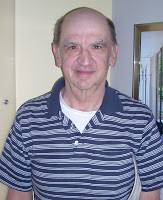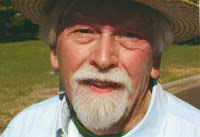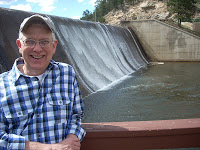In one of my recent
meanderings through Facebook, which sadly has become something I do multiple
times a day, I happened on the following little ditty posted and credited to a
web site named sun-gazing.com:
meanderings through Facebook, which sadly has become something I do multiple
times a day, I happened on the following little ditty posted and credited to a
web site named sun-gazing.com:
“I’m too old for
this shit
this shit
I’m too tired for
this shit
this shit
I’m too sober for
this shit
this shit
I don’t have time
for this shit”
for this shit”
sun-gazing.com
My initial reaction was
that this was a funny and perhaps poignant statement from someone on the current
state of America and the seemingly endless political nightmare we find
ourselves in. Something though slowly began to bother me, especially the last
line: “I don’t have time for this shit”.
I decided to check the web site and clicked on their “About Us” page,
where right at the top was the following sentence: “The Sun Gazing Community was born out of a growing awareness that
suffering is an optional state of being”.
that this was a funny and perhaps poignant statement from someone on the current
state of America and the seemingly endless political nightmare we find
ourselves in. Something though slowly began to bother me, especially the last
line: “I don’t have time for this shit”.
I decided to check the web site and clicked on their “About Us” page,
where right at the top was the following sentence: “The Sun Gazing Community was born out of a growing awareness that
suffering is an optional state of being”.
Let me go on record
calling “bullshit” on this unexamined bromide and suggest that perhaps the
authors have gazed at the sun a bit too long or have way to much privilege
coming out of their ass. There is no way I can distort the image of this little
boy’s suffering into an “optional” choice on his part or even perhaps more
perverted “God’s will”
calling “bullshit” on this unexamined bromide and suggest that perhaps the
authors have gazed at the sun a bit too long or have way to much privilege
coming out of their ass. There is no way I can distort the image of this little
boy’s suffering into an “optional” choice on his part or even perhaps more
perverted “God’s will”
The above statement that
suffering is something that is optional to me smacks of smug privilege. In
looking at my own attempts to ‘resist’ the Trump regime I need to carefully “resist”
personally falling into the trap of complacence. I have my Social Security and
Medicare and enjoy many of the benefits that seem to effortlessly fall on many
white males in America even many of us queer ones.
suffering is something that is optional to me smacks of smug privilege. In
looking at my own attempts to ‘resist’ the Trump regime I need to carefully “resist”
personally falling into the trap of complacence. I have my Social Security and
Medicare and enjoy many of the benefits that seem to effortlessly fall on many
white males in America even many of us queer ones.
Can I just sit this out
for four years of Trump with the perhaps sad realization that my life may not
change much at all? Is it enough to assuage my conscience, as last Saturday
night’s Louis C.K. SNL skit pointed out, by sitting on the couch and posting
and sharing anti-Trump memes on Facebook or adding Black Lives Matter to my
profile? The obvious answer in this great piece of satire is that it certainly
doesn’t cover one’s sad attempt at ‘resisting’.
for four years of Trump with the perhaps sad realization that my life may not
change much at all? Is it enough to assuage my conscience, as last Saturday
night’s Louis C.K. SNL skit pointed out, by sitting on the couch and posting
and sharing anti-Trump memes on Facebook or adding Black Lives Matter to my
profile? The obvious answer in this great piece of satire is that it certainly
doesn’t cover one’s sad attempt at ‘resisting’.
One of the things you
sometimes hear these days is “we survived Nixon and Reagan and we will survive
Trump too”. I have a couple observations on that statement. It may not apply to
the 55,000 Americans that died in Vietnam to say nothing of the millions of S.E
Asian lives lost during the Nixon presidency. And it behooves us to remember
how gay men fared during the Reagan years. This is poignantly brought home in
this photo of the small handful of members of the San Francisco Gay men’s
Chorus who survived the worst years of the AIDS epidemic in that City.
sometimes hear these days is “we survived Nixon and Reagan and we will survive
Trump too”. I have a couple observations on that statement. It may not apply to
the 55,000 Americans that died in Vietnam to say nothing of the millions of S.E
Asian lives lost during the Nixon presidency. And it behooves us to remember
how gay men fared during the Reagan years. This is poignantly brought home in
this photo of the small handful of members of the San Francisco Gay men’s
Chorus who survived the worst years of the AIDS epidemic in that City.
Even if I personally may
get by the next four years relatively unscathed many will not. My personal call
to resist needs action to go with it or it is just self-indulgent masturbation.
This was brought home to me very directly with a sign I saw at the Women’s
March in San Francisco this last January, it was being carried by a frail and very
elderly women and read: “I can’t believe I still have to protest this shit”. A
much different sentiment than “I don’t have time for this shit” don’t you
think.
get by the next four years relatively unscathed many will not. My personal call
to resist needs action to go with it or it is just self-indulgent masturbation.
This was brought home to me very directly with a sign I saw at the Women’s
March in San Francisco this last January, it was being carried by a frail and very
elderly women and read: “I can’t believe I still have to protest this shit”. A
much different sentiment than “I don’t have time for this shit” don’t you
think.
© 10 Apr 2017
About
the Author
the Author
I was born in La Porte Indiana in 1949, raised
on a farm and schooled by Holy Cross nuns. The bulk of my adult life, some 40
plus years, was spent in Denver, Colorado as a nurse, gardener and gay/AIDS
activist. I have currently returned to
Denver after an extended sabbatical in San Francisco, California.
on a farm and schooled by Holy Cross nuns. The bulk of my adult life, some 40
plus years, was spent in Denver, Colorado as a nurse, gardener and gay/AIDS
activist. I have currently returned to
Denver after an extended sabbatical in San Francisco, California.









